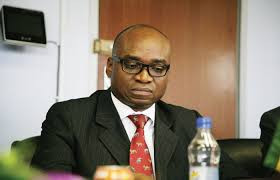
THERE is more to leadership than it meets the eye. NewsDay Weekender columnist Jonah Nyoni (ND) sat down with Nigel Chanakira (NC), an economist, entrepreneur, investment banker and leadership development coach and facilitator. Chanakira is the chairperson, coach and facilitator at Success Motivation Institute and Leadership Management Institute (LMI). Find excerpts below:
ND: How does the total person approach influence your views on leadership?
NC: I am a disciple of Success Motivation International and Leadership Management International. And I have been following them for probably 35 years, initially as a client and then five years, six years later. And for the past 25 years, I have been coaching individuals, kids, as well as leaders and managers. And when we talk about total leadership, the wheel of life, as we call it, it's the totality of a leader.
It's complete. People talk of life, work-life balance and the struggles they're in. So what is it that then completes them? And for us, it's a simple equation where we have six spokes of the wheel of life that we teach on.
You can rank them in your order of preference. For example, my ordering of the six begins with spiritual and ethical spoke, because I'm a spiritual being with a temporary human experience. The second spoke is about one's finances and career.
That really speaks to the goose that lays the golden eggs for an individual. So, a person's financial situation and the chosen career or business are then critical for them. Normally, we say it makes the other spokes very comfortable.
So the financial and career spoke is a very important one, particularly for a man, because you are the provider for your family. But then it doesn't stop there. Then we go to your physical and mental health, because your health is your wealth.
We speak about physical health and then your mental health as well. Having understanding of that spoke is very critical. We then move on to family and home as the fourth one.
- Zim needs committed leaders to escape political, economic quicksands
- Byo author eyes SA award
- US$200K armed robber in court
- Lupane man survives axe attack
Keep Reading
And clearly, they say a man's home is his castle, isn't it? And so your family, and we're talking here about your immediate family, your spouse, I like to call mine my spice, and then the kids, that's your immediate family. If you are not married, it's normally confined to your parents, as well as your siblings. That's what we would define as immediate family for a person who is not married.
Then we go to social and cultural, as the fifth spoke of the wheel. And in that, we are talking about your extended family now. And particularly for us Africans, that's a very important part of you.
If you are a married person, it's now relating to your parents, in-laws, siblings, your relatives, and then your friends. I use the concept of Cs.
This is something that I have developed over time. So it's your immediate cell, that's your cell unit, your family. And then maybe your church community.
Then you go into your city. You are a citizen, you belong to a city, so city affairs are important to you. And then your country, because obviously, like for me as an economist, my contribution to the country really comes largely from an economics perspective, because I'm an economist.
And so I can contribute to that. I have a role as a citizen to participate. And then my continent, I love my continent, Africa.
I am an African. Therefore, anything that is African, with its issues related to the African Union, would be of interest to me. But then I'm also finally a citizen of the world.
I'm a global citizen. And so the continents are of interest to me, because, for example, what's happening in Asia is exciting because they are developing States. And then what's happened in the Western continents, what we aspire for in certain respects, like growth of the economies, the order and structures that they may have, we may pick certain aspects.
So, from that perspective, I'm a global citizen. So you see, the fifth scope, when we say social and cultural, is very diverse because of my Cs, as I've put them. But you then are an engaged citizen.
The last one would be mental and educational. And if you are a leader, we are in an age of continuous learning. And so I hear you will be starting on your PhD soon.
I'm also submitting my thesis topic, which is on public debt. And so it's a continuous journey. I hope one day I will be a professor too.
So you can see in those six spokes as the LMI franchise defines them. There are actually 12; there are two in each. So there are 12 aspects of a leader. Your family, your home, your spiritual and ethical, your mental and education, your social and cultural, your physical and health.
So that is what we then define as the total leader. So if you have goals in each of those 12 specific areas, I think you are set for life. You can be called a balanced individual.
And from it stems what we now call emotional intelligence, of how you engage and lead yourself and how you engage and lead or be led by your community.
ND: You have all these insights, perspectives, and intelligence within you. As a leader, how do you constantly hone your skills to be this informed?
NC: So on my part, because as you know, initially I was a banker, an economist. I always go back, an economist by training, an investment banker by profession, and then a business leader by choice.
And then a success coach and facilitator by passion. Now, once I evolved from banking, which remains a part of what I do because I now consult and advise banks and coach bank leaders. But I have evolved now into the exciting journey of leadership development. And so in that journey, it means I am now a franchise holder of the three franchises, Success Motivation International, which focuses on an individual and their personal growth up until they are an entrepreneur.
And then LMI that focuses on leaders and managers within organisations and their development. And then last but not least, kids, making them champions from the moment they are cognitive, pre-school, all the way to becoming high school students. So it means I'm now covering the leadership development of an individual, no matter where they are.
And so in that journey by acquiring the franchises as I did in 2001, it's been a 24-year journey of annually going to conferences, doing the different programmes, and facilitating them. So we have over 40 programmes. Now, in those 40, it's covering each of the three faculties, the children or the family, because we also do successful parenting. And then the individual grows from time management, personal time management, all the way through to becoming a successful entrepreneur.
The third faculty develops managers and leaders with their challenges. So over the years, the annual conventions, me doing my own programmes within those faculties, have grown me as an individual. Then further to that, I have also had to coach people with different challenges.
I have had to read up on whatever the challenges are so that I can facilitate them to become more successful. I'm a contributor to the content of those programmes as well as the digitalisation. And that's been an exciting, fascinating journey for me. It means I'm continuously expanding.
ND: What role then does personal development play in organisational success?
NC: It is critical. I am a product of personal development.
I learned that when I grow as a leader, my organisation grows. Any leader must embark on a personal leadership development journey, because we don't have it all as leaders. We all have our blind spots as leaders.
The doctors call it a scotoma. We all have a blind spot. You don't know that you don't see different aspects of your leadership style.
If you don't have people who point it out to you, and more so when you are in the pole position of being a leader, our culture almost inhibits us. It inhibits the underlings of speaking truth to power. So culturally, if somebody is a chief, it's without question, isn't it? And we say the chief has the last word.
And so from that perspective, you can see the culture. But where you've got an outsider independently coaching you, it means they can see the character flaws, the leadership style flaws.
So when I walk into a corporate organisation, yes, I recognise the CEO, but if they're doing the same programme as all these executives, the standards are then the same for each one of them. And so they are learning. When I see flaws in leadership style, for example, just the day before yesterday, I was consulting for an organisation.
I noticed that whenever I praised those who had done well, the CEO was the first to shoot down that compliment. So I noticed immediately that he is not a motivational leader. That's a character flaw.
Because when you're a leader, guess what? People will go the extra mile for you. So when we were finishing, wrapping up the course, what it then means is I then sit down on a one-on-one basis with the leader. And I go through each one of his leaders and then end up with him, okay? Or I start with him and say, based on my observations, these are your strengths.
These are your weaknesses. You need to accentuate your strengths, but make sure that your weaknesses don't trip you. Because in that particular instance, imagine what the executors feel like when they throw in an idea and the boss is forever negative.
That's going to make them despondent. So you can tell that organisation is not going to be innovative. It means they are terrified to make errors. So they will perpetuate negativity within the organisation.
- Jonah Nyoni is an author, speaker, and leadership trainer. Follow Jonah on Twitter @jonahnyoni. WhatsApp: +263 772 581 918










